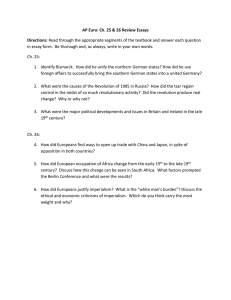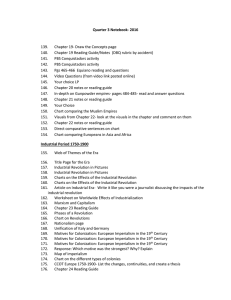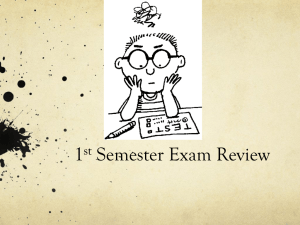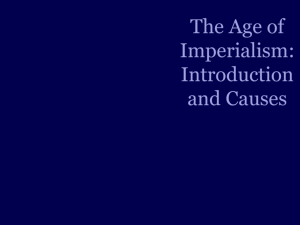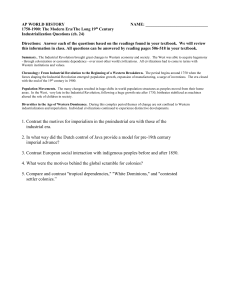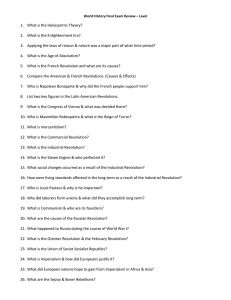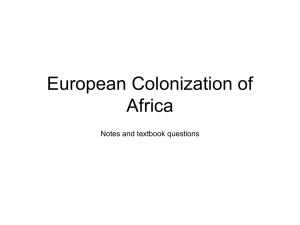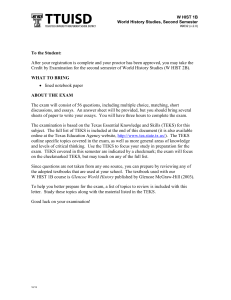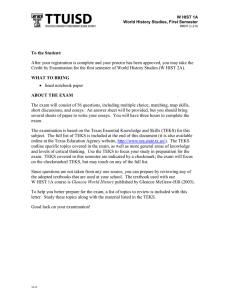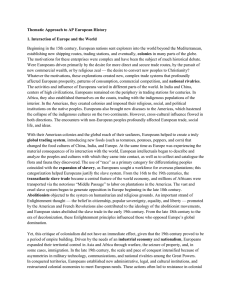File - Social Studies 9 Projects & Info
advertisement
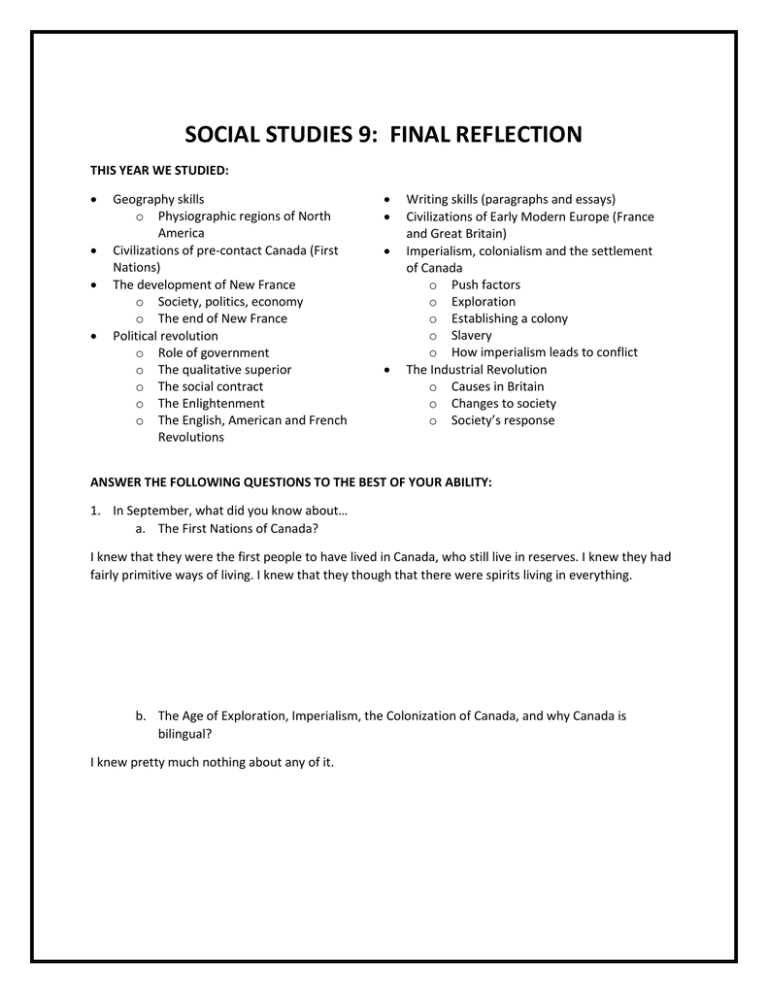
SOCIAL STUDIES 9: FINAL REFLECTION THIS YEAR WE STUDIED: Geography skills o Physiographic regions of North America Civilizations of pre-contact Canada (First Nations) The development of New France o Society, politics, economy o The end of New France Political revolution o Role of government o The qualitative superior o The social contract o The Enlightenment o The English, American and French Revolutions Writing skills (paragraphs and essays) Civilizations of Early Modern Europe (France and Great Britain) Imperialism, colonialism and the settlement of Canada o Push factors o Exploration o Establishing a colony o Slavery o How imperialism leads to conflict The Industrial Revolution o Causes in Britain o Changes to society o Society’s response ANSWER THE FOLLOWING QUESTIONS TO THE BEST OF YOUR ABILITY: 1. In September, what did you know about… a. The First Nations of Canada? I knew that they were the first people to have lived in Canada, who still live in reserves. I knew they had fairly primitive ways of living. I knew that they though that there were spirits living in everything. b. The Age of Exploration, Imperialism, the Colonization of Canada, and why Canada is bilingual? I knew pretty much nothing about any of it. c. The relationship between the First Nations and the European colonists? Nothing. d. The relationship between citizens and their government? Nothing. e. How the world evolved into the Modern Age? I knew that the modern world came after the tremendous industrial revolution where so many things were just invented in a golden age of inventions. 2. This year, what have you learned about… a. The First Nations of Canada? They were very hospitable to the European explorers. Most did not want to share their territory with the Europeans. Some were hostile to the Europeans. They traded a lot of furs quite regularly. b. The colonization of North America? The Spanish, English, British, Courland, Danish, Dutch, French, Norwegians, Portuguese, Russia, Scottish, and the Swedish all attempted to colonize North America. The colonies were not well met by the natives, but the greedy tribes loved the trade they got. c. The relationship between the First Nations and the Europeans? They had a neutral relationship with most First Natives, due to the profitability of the trades they did. The Iroquoians were hostile to the Europeans. d. Political Revolutions? e. The Industrial Revolution? There were hundreds, maybe thousands, of useful inventions, some practical, some just reducing labor. Alexander Fleming caused modern medicine and inspired many forms of antibiotic found today. 3. What one thing did you find the most interesting in each unit? a. Civilization of Early Modern Europe: I honestly don’t remember this unit. b. First Nation Civilizations: Researching the Blackfoot people and their extremely different traditions and worldviews. c. The colonization of North America: The extremes people went to, simply for money. d. Political Revolutions: I found it interesting how often people will use violence to solve problems, thinking it would be the best solution. e. The Industrial Revolution: The sheer amount of innovation which took place. 4. Compared to September, how has your understanding of our history and society changed? I don’t have a solid visual progression in my mind quite yet, but I understand some of the major events that lead to modern society. THIS YEAR: 5. What was the one thing you did very well? Getting stuff done on time. 6. What do you need to work on? Faster inspiration for writing, I can write, I just need to be able to feel like I can write. 7. What could you have done differently to be more successful than you were? I could have focused more on working at home, rather than only at school. 8. What was your favourite thing that we did this year? The Terra Nova Pitch. 9. What was your least favourite thing that we did this year? This final reflection.
